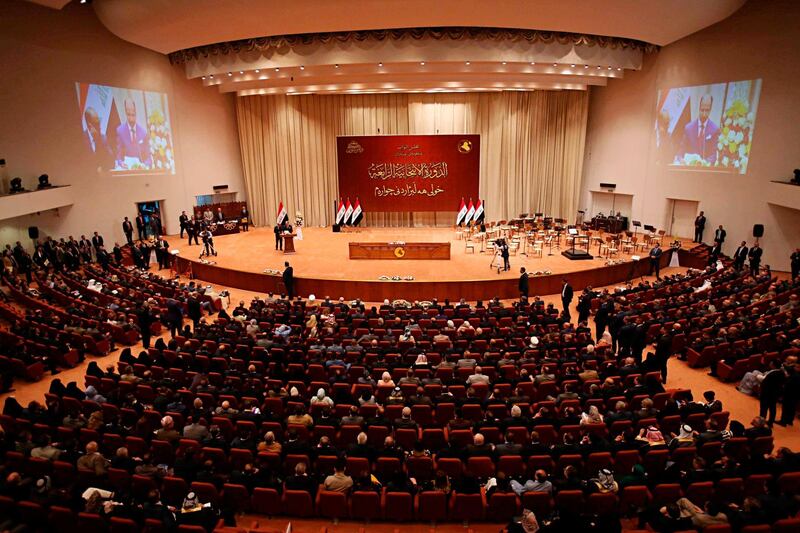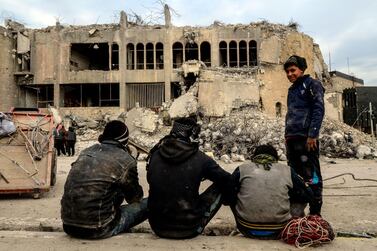Iraq's parliament approved on Thursday the highly contested national budget for 2019, ending months of stalemate over money allocation for the country's provinces.
The budget of $111.8 billion has increased by 27 per cent since last year. It allocates a large share to public salaries, including to the Kurdistan Region, which lawmakers say will help ease tensions between Baghdad and Erbil.
The Kurdistan Region's capital and the federal government have been embroiled in a series of spats since the Kurdish referendum for independence in September.
The draft bill was originally submitted to parliament in October but has been fiercely disputed, until now.
However officials in Baghdad have told The National that the bill fails to distribute sufficient funds for the reconstruction of areas that were damaged during ISIS' occupation.
“The budget will not be able to address all of Iraq’s crucial needs especially the reconstruction of areas liberated from ISIS,” said Jaber Al Jaberi, an Iraqi MP for Anbar province.
Approximately 25 per cent of the budget is usually allocated to reconstruction and is distributed to the ministries and provinces, Mr Al Jaberi added. The government estimates that rebuilding Iraq and repairing damaged homes after three years of war will cost more than $88bn.
“Anbar only gets one per cent of the total budget,” Mr Al Jaberi said in reference to the Sunni-majority province.
In addition, the MP explained, Iraq's annual revenue – which comes primarily from its oil – has plummeted, exacerbating an already dire financial scenario.
“One thing this budget didn’t do is allocate enough money to public investment and reconstructions,” said Sakwat Shamsulddin, a member of parliament.
The budget, said Mr Shamsulddin, does not represent the strategy envisioned by Prime Minister Adel Abdul Mahdi.
“The only two things this budget does is create 60,000 job opportunities and allocate money towards the Ministry of Electricity for investment,” he said.
For over a decade Iraq has been unable to meet public demand, Kurdish official Janghis Awakaly said. This was compounded by war and the destruction of infrastructure in areas like Anbar, Mosul, Diyala, Salahadin. Even in the south, which remained largely untouched by ISIS, infrastructure suffers from decay.
“The budget has failed to address the issue of rebuilding the devastated parts of the country,” Mr Awakaly said.
While not under Baghdad's command, a large share of the bill is set to go to the Peshmerga – Kurdistan's military forces – whose salaries have gone largely unpaid for over two years. The news has been welcomed by the Kurdish government.
"I believe this will enable Erbil and Baghdad to work on reducing the tensions between them and to resolve their outstanding issues," Mr Awakaly said.
The budget also stipulates that the Kurdistan Regional Government must export 250,000 bpd of crude through state-owned companies and deposit the revenues in federal coffers.
Nearly 90 per cent of Iraq's budget depends on income from oil revenues.
Iraq expects to export 3.9 million barrels per day in 2019, including 250,000 bpd from the Kurdish region, at an average of $56 per barrel.
The current price of crude sits at $63 per barrel.
The deficit is expected to more than double to $23.1 billion, while investments increase to $27.8 billion.
Iraq's suffers from a poor infrastructure after years of war against ISIS and alleged corruption that has left thousands of people without power and water.







